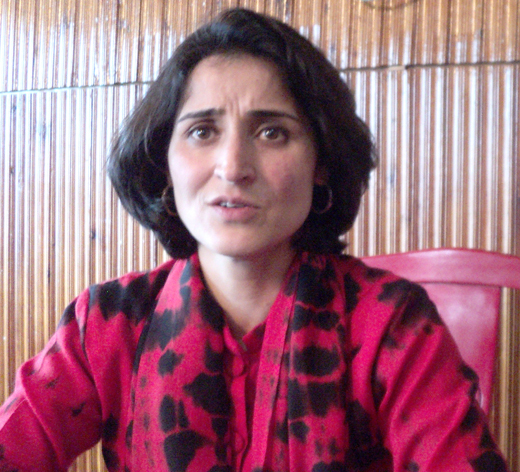Curiosity towards life flourished the scientific acumen of a girl from old Srinagar who is today doing pioneering work in the field of biochemistry in America. Bilal Handoo details the journey of Humaira Gowher for whom research is all about fun

In the narrow alleys of old Srinagar, Humaira Gowher, 35, spent her childhood with a different idea of fun. Unlike her classmates and friends, chemicals and chemical reactions inside human bodies intrigued her. Her devotion did make her look weird for some; but then, scientists are known for eccentricity. But she is no eccentric; rather someone who believes research is all about fun.
But before arriving on the scene, she had to pass through twists and turns in life. For someone like Gowher, confined space in the lab always scored over the lively crowd. At the age of 11, her family shifted from the old city to the city outskirts in Zakoora. She soon passed her class 12 and made up her mind to do honours in biochemistry from Aligarh Muslim University (AMU). Later she did her Masters’s there.
During her stay at AMU, she qualified for a doctorate program in Germany. She went there and took two and a half years to complete the degree. It was 2002 and her area of expertise was: Regulation of DNA methylation in development and disease.
DNA methylation is a heritable genetic phenomenon, associated with gene repression. “The expression of a large group of genes is dynamically regulated during the normal cell cycle,” she says. And thus, an inspection of the regulation of genetic processes like DNA methylation is the key to understanding—how the cell responds to growth. Probably, the best part of her research was that she revealed certain facts about the newly discovered enzymes in genetic material. And thereby, she paved a way for new research.
Married to a mechanical engineer from Kashmir, Gowher believes that her immediate challenge is to strike a balance between her time in the lab and home. “I was told by my friends that being married might impede my research works,” she says. “Honestly speaking, yes, it does impede. But doing everything with the right frame of mind can prevent couples to step on each other’s toes.”
For being a scientist, she says, one needs to be curious about life. And yes, she isn’t an exception. “There was this question always at the back of my mind: what I am made of? How programs have been coded inside our cells? And many such queries,” she says. “And we scientists mainly attempt to decode what has been coded in us.”
But decoding the cell programs is indeed an uphill task. Gowher candidly admits that there are countless layers involved in it, “and we haven’t yet been able to reach the first layer! As a scientist, the whole hell crashes around when we attempt to reveal that embedded information.”
At the time when the cancer rate is reportedly escalating in Kashmir, Gowher says some unknown triggers are affecting our genetic pool. “Ironically, the genes which are responsible for causing cancer are important for life,” she claims. “But yes, they turn radical when activated by an unwanted trigger.” Humans aren’t conscious what they are feeding to their bodies, she says, “and this is what unleashes hell sometimes.”
In 2005, Gowher along with her family went to America to do her post-doctorate degree. After applying for fellowships in a number of labs there, she was finally positioned in the National Institute of Health (NIH). “I was extremely lucky to work under Dr Gary Felsenfeld there,” she says. “He is one of the pioneers in molecular biology who has produced Nobel laureates.”
Gary and Gowher performed research works together for six years and published three acclaimed research papers. Under Gary’s mentorship, Gowher’s acumen in research flourished. “It was Gary who encouraged me for an independent research,” she says. “He believed that I have a lot of ideas and also, should have my own lab.”
But having her own lab wasn’t a cakewalk for Gowher in post-recession hit America. She had to wait till August 2013 when she was appointed as Assistant Professor in the biochemistry department of Purdue University. And today many doctorate and undergraduate students are doing research under her as she has her own lab now.
With 22 reputed international journals already under her belt, Gowher’s research has already paved a way for anti-cancer medicines. But even then, research is akin to fun for her. “I mean,” she says, “why shouldn’t you be thankful for having a job—where you are being paid, for having fun.”















